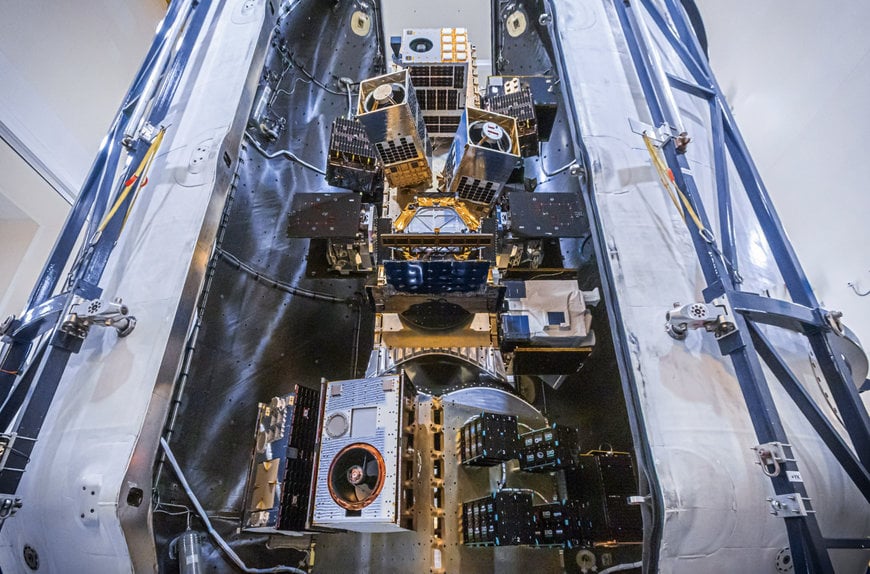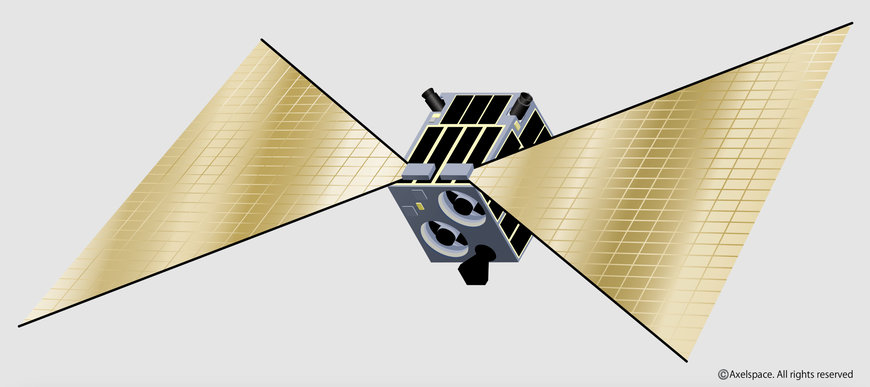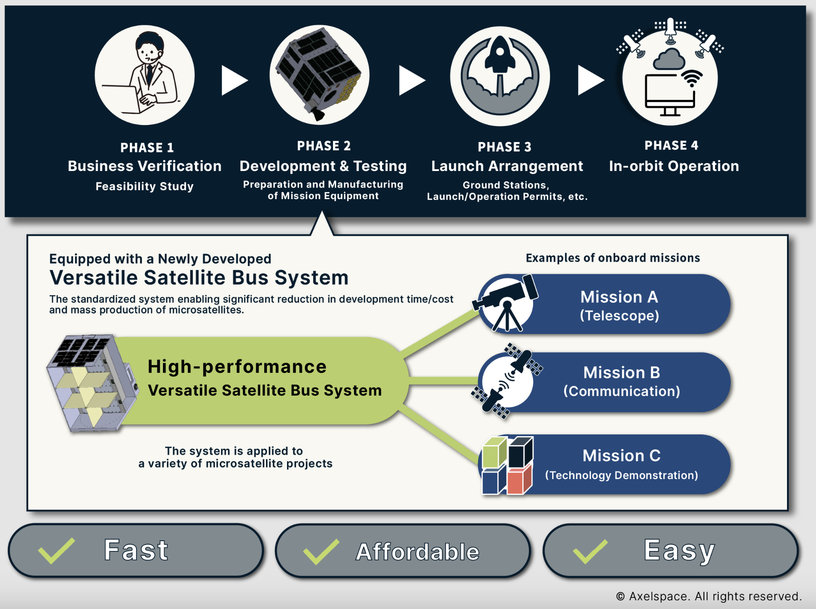www.aero-defence.tech
07
'24
Written on Modified on
AXELSPACE ANNOUNCES SUCCESSFUL LAUNCH OF DEMONSTRATION SATELLITE “PYXIS”
PYXIS was launched on March 4, 2024 (PST) on SpaceX’s Transporter-10 mission from Vandenberg Space Force Base (California, USA).

The successful launch of Falcon 9 (Transporter-10) on March 4, 2024 (PST) from Vandenberg Space Force Base (California, USA). (C)SpaceX
Axelspace announces the successful launch and orbital insertion of the demonstration satellite “PYXIS,” marking another milestone in the company’s history.
Axelspace has received the first voice transmission from PYXIS. It will now proceed through the initial operational phase to verify the performance of each onboard component and the regular operational phase to execute the missions in orbit.

(C)SpaceX
Missions of PYXIS
PYXIS will work on the following missions in orbit.
Axelspace announces the successful launch and orbital insertion of the demonstration satellite “PYXIS,” marking another milestone in the company’s history.
Axelspace has received the first voice transmission from PYXIS. It will now proceed through the initial operational phase to verify the performance of each onboard component and the regular operational phase to execute the missions in orbit.

(C)SpaceX
Missions of PYXIS
PYXIS will work on the following missions in orbit.
- Demonstration of the versatile satellite bus system for AxelLiner
- Demonstration of the sensors for the next-generation AxelGlobe satellites (GRUS)
- Demonstration of a satellite radio experiment system by SONY Group
PYXIS is equipped with a deorbit device called D-SAIL, the Deployable Deorbit Mechanism for microsatellites. Developed as a countermeasure to the growing problem of space debris, this mechanism facilitates the rapid descent of satellites into the atmosphere upon mission completion, leveraging thin atmospheric resistance in orbit. It is planned to become the standard equipment on future satellites developed by Axelspace.

D-SAIL, the Deployable Deorbit Mechanism, prevents satellites from becoming space debris after mission completions. Leveraging thin atmospheric drag, it shortens the satellite’s entry into the atmosphere.
Innovation with AxelLiner
PYXIS is the first demonstration satellite of AxelLiner, the one-stop microsatellite service. Traditional satellite development, often adopting a ‘full-customization’ approach, entails prolonged lead times, substantial costs, and demands a high level of expertise. This complexity poses challenges in formulating business plans for satellite projects, affecting a broad spectrum of users, including those from the private sector.
To address the escalating demand for microsatellites and enhance their usability, AxelLiner is leading the way with two major innovations: a packaged service for microsatellite projects, and their mass production.

AxelLiner aims to establish a packaged service for microsatellite projects as well as the mass production of microsatellites.
Applying the knowledge and learnings acquired from the PYXIS demonstration, Axelspace continues to deliver user-friendly solutions to diverse needs by further accelerating its technological development for AxelLiner and expanding its GRUS constellation for AxelGlobe. This unwavering commitment aims to bring the vision of “Space within Your Reach.”

D-SAIL, the Deployable Deorbit Mechanism, prevents satellites from becoming space debris after mission completions. Leveraging thin atmospheric drag, it shortens the satellite’s entry into the atmosphere.
Innovation with AxelLiner
PYXIS is the first demonstration satellite of AxelLiner, the one-stop microsatellite service. Traditional satellite development, often adopting a ‘full-customization’ approach, entails prolonged lead times, substantial costs, and demands a high level of expertise. This complexity poses challenges in formulating business plans for satellite projects, affecting a broad spectrum of users, including those from the private sector.
To address the escalating demand for microsatellites and enhance their usability, AxelLiner is leading the way with two major innovations: a packaged service for microsatellite projects, and their mass production.

AxelLiner aims to establish a packaged service for microsatellite projects as well as the mass production of microsatellites.
Applying the knowledge and learnings acquired from the PYXIS demonstration, Axelspace continues to deliver user-friendly solutions to diverse needs by further accelerating its technological development for AxelLiner and expanding its GRUS constellation for AxelGlobe. This unwavering commitment aims to bring the vision of “Space within Your Reach.”

